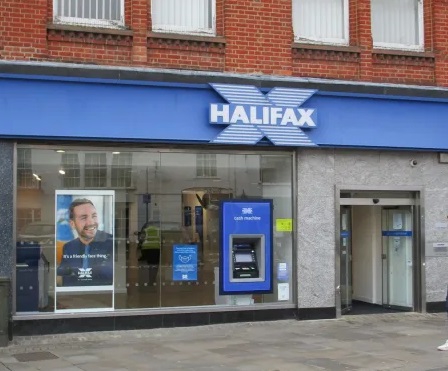In yet another blow to the local banking landscape, another prominent institution situated along Andover’s High Street has made the decision to shut its doors for good. Halifax, a subsidiary of the Lloyds Banking Group, recently announced its forthcoming closure, with operations ceasing on July 25 at its location on the High Street.
This announcement follows closely on the heels of Barclays’ decision to shutter its Andover High Street branch, slated for closure in May. With the imminent departure of two major banking entities, concerns about accessibility to financial services in the area have understandably surfaced.
In light of the impending closure, Halifax has assured its patrons that it will be reaching out to them directly to elucidate the circumstances surrounding the branch’s closure. Additionally, the closure will extend to the cash machine situated outside the branch premises.
Acknowledging the impact of this decision on its employees, Halifax has stated that affected staff members will be presented with opportunities to transition into roles at other branches or within different divisions of the organisation. This move comes after the bank conducted a comprehensive evaluation of alternative banking services available to customers and their prevailing banking preferences.
Following the closure, the nearest Halifax branches will be located in Winchester and Newbury, further emphasizing the shift towards digital banking and alternative service models.
To mitigate the repercussions of the closure, Halifax has announced plans to introduce a community banking service, with designated hours set aside for a community banker to assist customers with their banking needs. This service will be established in a local venue, potentially a library, within the vicinity of the closing branch.
Highlighting the decline in foot traffic and transactions at the Andover branch over the past five years, Halifax cited a 56% decrease in personal customer transactions. This decline has been attributed to the growing trend of online and mobile banking among customers.
A spokesperson for Halifax reiterated the evolving preferences of customers, noting the increasing reliance on digital banking channels and the availability of alternative banking options such as the Post Office and free-to-use ATMs in the vicinity. Customers will be duly informed of alternative banking methods through personalized correspondence from the bank.
As the banking landscape continues to evolve, Halifax’s decision underscores the ongoing transition towards digital banking services and the imperative for financial institutions to adapt to changing consumer behaviours while ensuring continued access to essential banking services within local communities.
Tune Into Your Local Radio Station – Andover Radio






















